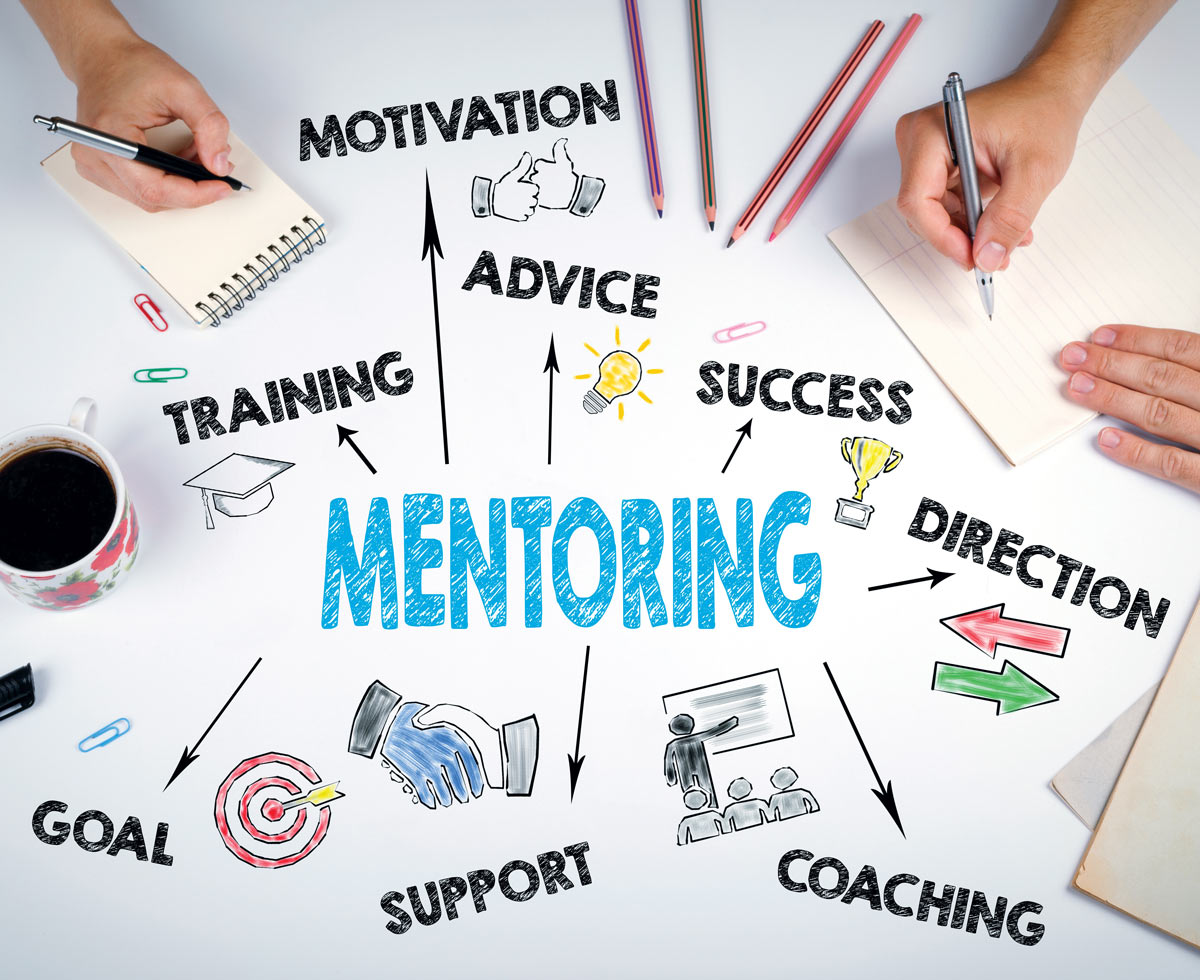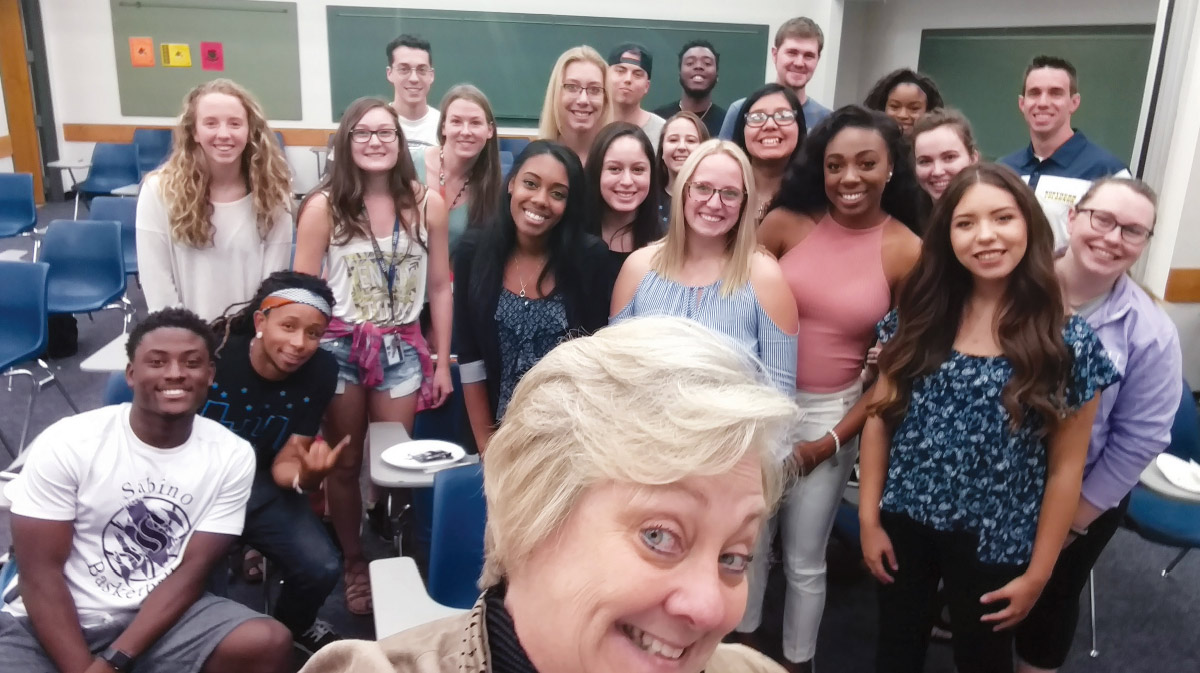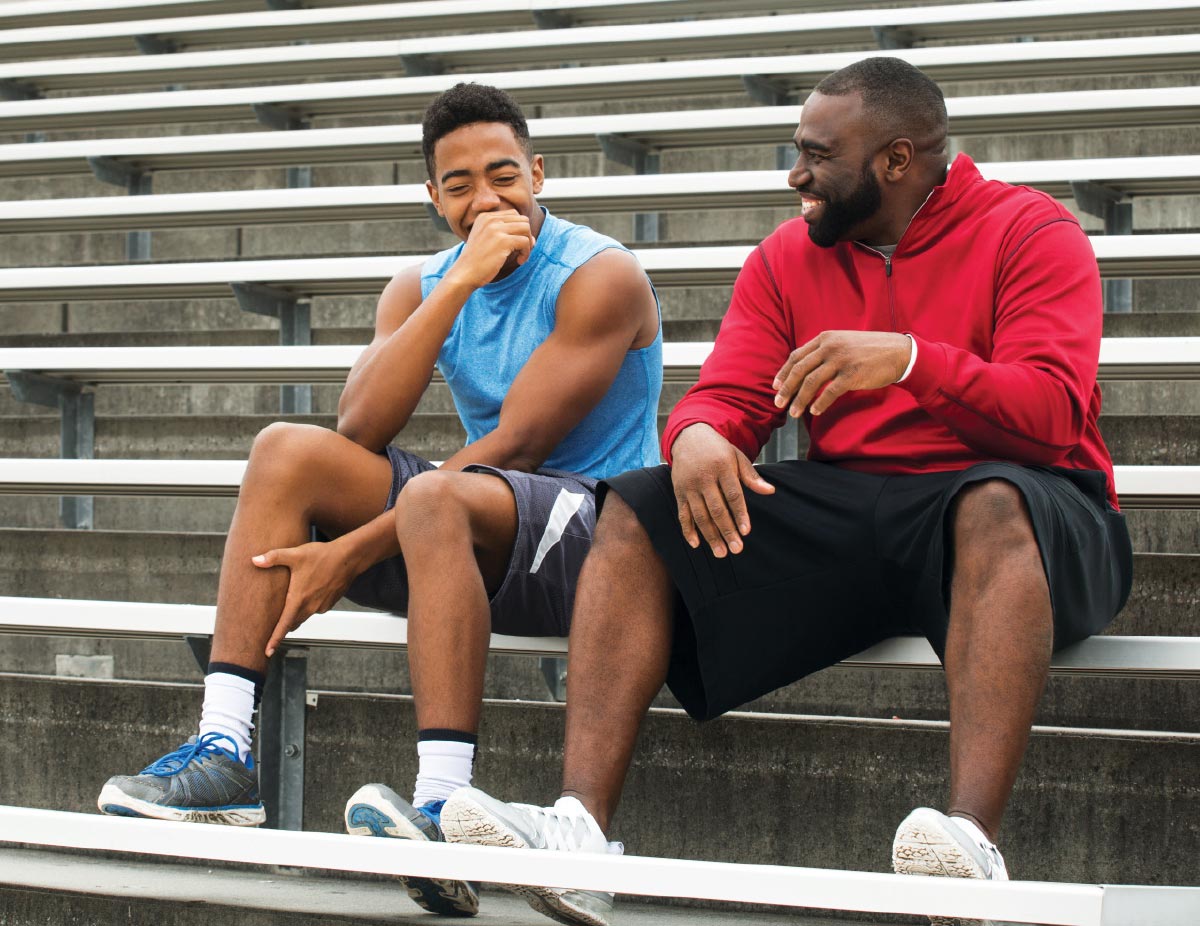he caller ID pops up on my cell phone. It’s an intern from years past. A smile emerges, the hellos quickly bringing us back to a comfortable place. As the conversation progresses, it’s clear this is more than a call to catch up. They have called for advice. The mentor is in session.
I can’t think of anyone who doesn’t need a mentor at some point during their lifetime for professional or personal reasons. We can all benefit from the lessons imparted by a valued mentor. A 2019 study by Olivet Nazarene University found that 76 percent of people consider mentors important, yet only 37 percent have one. Mentors are the people who carve a special place in our journey that stays with us for a lifetime. These people are leaders and know this role is as important as any they play at work, at home or in their community.
As I assess my career, I realize that I am where I am today because of the mentors I have had along the way. Some are still mentoring – I’m clearly a work in progress. Others have moved on but still left a lasting impression, a nugget of wisdom that continues to guide me. A quote from my mentor, Kyla Thompson, states it beautifully: “Give back to others what you have learned. When you get on top, send the elevator back down.”
If we think about it, we will likely find there are several people that have contributed to the success and accomplishments we are experiencing today. Those who inspire, champion, serve as role models, voices of conscience and reality checks. I’m grateful for the many that have been kind enough to take me under their wing and help me leverage my talents to their highest level.

Mentoring can happen from a personal or volunteer perspective. As a Court Appointed Special Advocate (CASA), I work with children in the court system. While a different setting, the roles are no different: a sounding board, a resource, a role model and often their only champion during a traumatic time.
Of all the mentors I have had personally, and of myself with those I have mentored, I believe one thing: we wanted to help the person grow. Personally. Professionally. There’s a level of devotion needed, a commitment to invest in those who will follow.
- Inspiration – visionary, options, opportunity, desire to help develop others
- Champion – cheerleader, belief, support, laughter/humor
- Guidance – reality checks, sounding board, open mind, confidant
- Connector – to a network, resources, experience
A mentor is a teacher who shares knowledge, skills and insights. A mentor allows the mentee to make mistakes but isn’t shy about giving their opinions. Then they let them make their own decisions. They bring perspective to a situation where a mentee may be blinded by emotional bias, lack of experience or fear of failure. In these moments we can reflect, and likely laugh some, while sharing the scrapes we’ve all experienced along the way. When we laugh, we learn. When we mentor, we grow.

As a leader in the Public Relations Society of America (PRSA), I have visited university campuses, talked to students and presented at professional conferences. These platforms provide mentoring on a mass scale by allowing the sharing of expertise and skills to aspiring professionals. Mentees seek out those they admire and aspire to emulate; I know I did. If you don’t know where to start, go to your network or recognize talent among your peers. I’ve found that most mentor-mentee relationships happen organically through our associations.
2. Lead
Develop an internship program, providing a means to mentor future professionals. You don’t have to be a big corporation to implement an internship or mentoring program. My small independent practice has incorporated paid interns from the very beginning. This is an investment in the future of my profession and the professionals who will carry it forward. More than 60 students have passed through these doors to explore and refine their skillsets. In turn, I have gained insight into new trends, technology and shifts in the education system.
3. Help Build Relationships
The value of mentoring programs has been recognized by 71 percent of Fortune 500 companies, according to Forbes. In a company setting, matching new employees with trusted veterans can be a way to bridge institutional and intellectual knowledge. Other benefits include a cohesive workforce, increased recruitment and retention, and diversity of thought and leadership. A study by Sun Microsystems found retention rates were dramatically higher (about 70 percent) with those who participated in their mentoring program. Mentors were promoted six times more often and mentees were promoted five times more often than those not in the program.
I have found that the most important thing each of us can do is to ask questions. Delve into bigger issues, challenges and opportunities. This is the time to share our own lessons – good or bad – the stories that can bring clarity to help a mentee pause, reflect and, if needed, redirect. Sometimes it’s affirmation that’s needed to confirm a decision. Sometimes it’s a reality check. A mentor is there for both scenarios.
Without a doubt, being present – really present – during the conversation is essential to maintaining a mentoring relationship. Listen with intention. There’s no one formula that works when mentoring someone. The moment may call for a pat on the back for a job well done, or it could be breaking down the obstacles into manageable next steps that’s required. Whatever the case, be present.
Finally, you are a resource. A resource of knowledge, encouragement and experience. Good mentors are also a resource of tools and networks that expand a mentee’s vision to explore beyond and gain understanding.

Mentoring generates a positive shift that can’t be overlooked at work, at home or in our communities. Maybe it’s as a little league coach or a church volunteer. Whatever the case there is always someone who may look to you for advice, support or a high-five. You may never know it, but that time, that nugget of wisdom imparted, may be life-changing. Now is the time, as a leader, to let mentoring be part of your legacy to the future.
